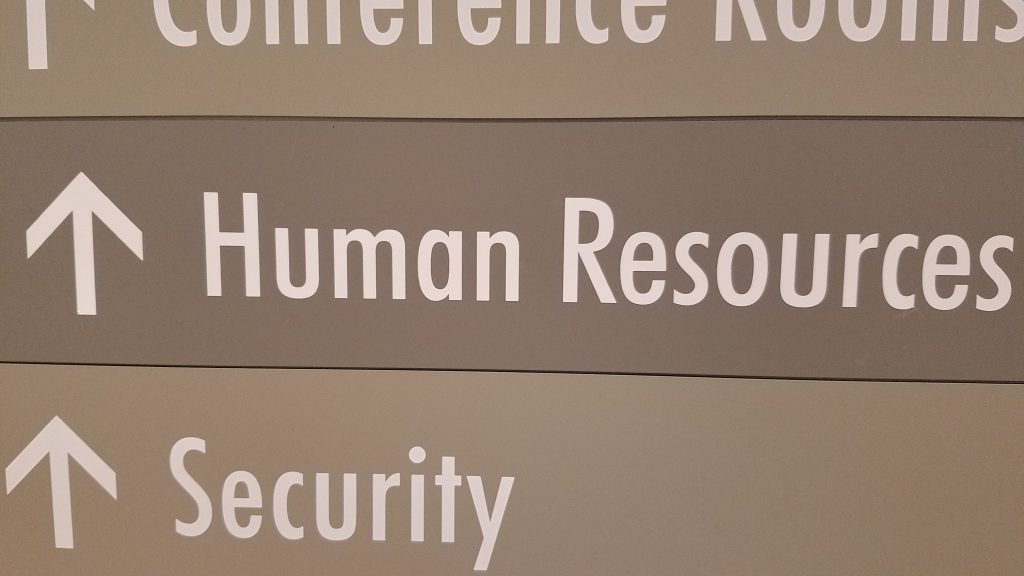Diagnosis and your benefits- Questions to ask HR
by James Hiter, Streak for a Cure, Inc. Founder, Survivor and Streak Runner.
The decision to talk with your employer’s human resources department after a diagnosis or progression can be a little scary. Even with a long-term positive relationship with my employer, I was still a little nervous. What would happen when they found out? Could I be forced or asked to leave my role?

Soon after the discovery of a mass in my lung, it became apparent that I really needed to fully understand my benefits. I needed to know what would happen in a variety of circumstances- death, disability and a gradual decline that may eventually result in my death or disability. Confronting these circumstances is probably the scariest part of a diagnosis or progression- yet knowing what would happen in each of these situations was vital to my planning.
You want to ask a set of “what would happen if…” questions for several different situations. Before you get to those questions, it’s a good idea to get a complete run-down of your benefits. Additionally, you can frame up the discussion by telling them the full story about your diagnosis, part of your story or just by saying something like…. “I’m doing some extensive planning (with my family or financial advisor). It is important to me to understand how my benefits work in a variety of situations and circumstances. I know we have good benefits here at _________. Can you help me understand my benefits and how they work?” In order, here are some of the more specific questions that you may ask of your HR team:
- “Can you explain to me all the benefits I receive today (including health, life, disability, retirement and anything else that I receive because of working here in addition to my salary/income)?” Write down each of these benefits, as these are discussed. Include as many details as possible.
- “Are there benefits that are available other than the ones that were just mentioned? If so, how/when might I enroll in those benefits if I decided I wanted to participate?” Capture this information too.
- “If something unexpected happened to me, what would happen to each of these benefits in the event of my death?” Review each of the above-mentioned benefits asking this question. It may seem obvious but there could be some benefits that are affected may surprise you. For example, in the event of my death, any remaining stock options would vest immediately and my wife would have one year from my death to exercise them. That was an important detail in planning.
- “If I became too sick or hurt to work (i.e. disabled) what would happen to each of the benefits?” One of the answers to this question was a pleasant surprise to me. My company continues to provide health insurance after disability for a period of time based on years of service.
- It is a good idea to understand what would happen to each of your benefits if your health would gradually decline. If you are in a performance-based role with variable income (i.e. sales or sales leadership) understand the impact to your benefits if your income declines. Often your benefits (life and disability) are based on some sort of average of the last year or two of your income. This number is usually recalculated at the end of the calendar year. Averaging in a year of poor income could substantially lower your benefits if your compensation is tied to your performance. If you attempt to work deep into declining health (and declining income), your benefits could be impacted. It’s important to do what’s right for you, but it is equally important to understand the economic impact to you and your family.
Undoubtedly, there are many other questions that you should ask. Hopefully the questions listed here will serve as a starting point for your conversation with Human Resources. You should include your spouse, significant other or caregiver in these conversations whenever possible. My wife thought of helpful questions that added to our understanding. Additionally, we both took notes. This proved helpful later as we were confirming our understanding of the answers to each question. It was also important to me for her to have a connection with the leaders of our HR department. If something happened to me, I wanted them to know each other.
How much you disclose at work is personal decision. Factors to consider are: your tenure, your relationship with your supervisor and their bosses, the size and temperament of your employing company, your age, whether you are part of a “protected class,” (protected classes include groups of people for whom the government has spelled out extra protections. These include minorities, certain age groups and others), etc. I had been with my company (a fortune 500 financial services company) for nearly 25 years. My position and reputation were both strong. Nonetheless, it was hard not to worry. When you are confronted with a potentially terminal diagnosis, it can amplify your concerns about nearly everything.
Conversations with human resources can be scary and overwhelming. With the right questions and good note taking, these conversations can be very helpful and informative. If something doesn’t make sense to you, keep asking questions. This stuff is important. It is vital that you understand your benefits and what happens in the various situations that you may confront.
At Streak for a Cure, we believe knowledge is empowering. It isn’t easy to confront these different possibilities. Addressing death and disability scenarios doesn’t mean you have given up hope. It means you are a smart realist who wants to make sure your plans are solid no matter what happens.
Streak for a Cure, Inc is an organization founded to help change attitudes and beliefs about lung cancer, while raising funds for more research. Never-smoker lung cancer rates are on the rise. SFAC is committed to helping researchers find out why. Thank you for your support.

